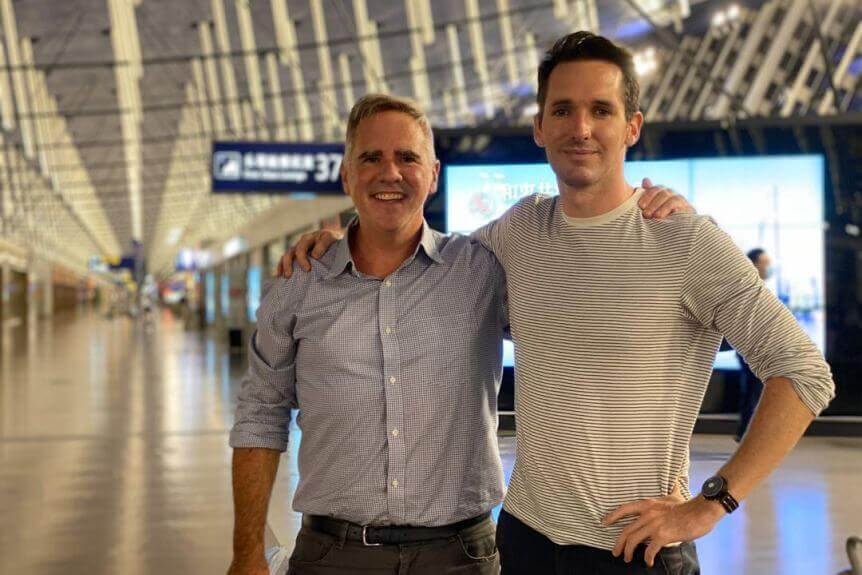After The Australian Financial Review and ABC’s China correspondents returned to Sydney on Tuesday morning, Australia now has no accredited journalists in the East Asian country for the first time since 1973. The two journalists were under diplomatic protection in Australian missions for five days prior to their departure from China.
The return of AFR’s Mike Smith and ABC’s Bill Birtles comes amidst escalating tensions between China and Australia, with the former accusing the latter of parroting what it sees as unfounded criticisms of Beijing. In fact, Australia’s ambassador to China, Graham Fletcher, was forced to negotiate with Chinese authorities to seek approval for their departure from the country, given that they had been named in a “national security case”.
Australian diplomats worked hard and fast to secure their safety after the Chinese government arrested Cheng Lei, an Australian journalist working for Chinese state media, just a few days earlier.
China’s Ministry of Foreign Affairs, for its part, has commented on these developments by saying that foreign journalists are still welcome and have “nothing to worry about”, as police were merely following “normal enforcement laws” when Birtles and Smith were pursued for questioning. The Australian’s Will Glasgow has now been advised against traveling back to China.
Tory Maguire, the national editor of The Sydney Morning Herald and The Age, called these recent events “deeply concerning” and said that China had made it “almost impossible for Australian news outlets to operate” in the country. Meanwhile, Richard McGregor, who is a senior fellow at the Lowy Institute and a former China correspondent for The Australian and the Financial Times said that foreign journalists were now under the control of the “Chinese security apparatus, rather than the foreign ministry”.
Bill Birtles, since returning to Australia, has said that he was questioned by security officers about the topics of his writing. He spoke of his “sadness” at leaving a city he “called home” and at becoming a “pawn in a much bigger diplomatic stoush”.
Meanwhile, Foreign Minister Marise Payne has reiterated her mistrust of China, saying that Australians should not travel to the country as they risk being “arbitrarily detained”.
In March, China’s Foreign Ministry announced that it is revoking the press credentials of American journalists from The New York Times, The Wall Street Journal and The Washington Post, barring them from working in China, Hong Kong, and Macau. Further, Beijing has also declared five US media outlets–Voice of America, The Times, The Journal, The Post, and Time magazine as government functionaries. These moves are in retaliation to similar actions by the Trump organization against Chinese state-owned news agencies in the US.
In light of what has transpired over the past few days, it remains to be seen whether China will take a similar approach with Australian news outlets as well.
Australia Now Has No Accredited Journalists in China After Last Two Correspondents Return
Australia’s ambassador to China, Graham Fletcher, negotiated with Chinese authorities to seek approval for their departure from the country, after they were named in a “national security case”.
September 9, 2020

IMAGE SOURCE: ABCThe Australian Financial Review’s Michael Smith (left) and the ABC’s Bill Birtles at Shanghai Airport on Monday.
